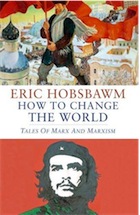What has the market turmoil of August been telling us? The answer, I suggest, is three big things: first, the debt-encumbered economies of the high-income countries remain extremely fragile; second, investors have next to no confidence in the ability of policymakers to resolve the difficulties; and, third, in a time of high anxiety, investors prefer what are seen as the least risky assets, namely, the bonds of the most highly rated governments, regardless of their defects, together with gold. Those who fear deflation buy bonds; those who fear inflation buy gold; those who cannot decide buy both. But few investors or corporate managers wish to take on any longer-term investment risks.
Welcome, then, to what Carmen Reinhart, senior fellow at the Peterson Institute for International Economics in Washington, and Harvard’s Kenneth Rogoff call “the second great contraction” (the Great Depression of the 1930s being the first). Those less apocalyptic might call it the “Japanese disease”.
Ms. Reinhart and Rogoff of course are the authors of This Time is Different, Eight Centuries of Financial Folly, a monumental book which will probably earn them a place along with Hayek and Keynes and Shumpeter among other financial demi-god gurus. Pete Peterson is himself a world-class maitre d' of running one of the most influential financial think tanks on the planet---like a year-round Davos. Wolf goes on:
Many ask whether high-income countries are at risk of a “double dip” recession. My answer is: no, because the first one did not end. The question is, rather, how much deeper and longer this recession or “contraction” might become. The point is that, by the second quarter of 2011, none of the six largest high-income economies had surpassed output levels reached before the crisis hit, in 2008 (see chart). The US and Germany are close to their starting points, with France a little way behind. The UK, Italy and Japan are languishing far behind.
Wolf dives into the economic complexities with the finesse of a financialmaistro waving a baton before an orchestra of horns, woodwinds and other instruments.
The authoritative National Bureau of Economic Research of the US does define a recession as “a significant decline in economic activity spread across the economy, lasting more than a few months”. This is to focus on the change in output, rather than its level. Normally, that makes sense. But this recession is not normal. When economies suffer such steep collapses, as they did during the worst of the crisis (the peak to trough fall in gross domestic product having varied between 3.9 per cent in France and 9.9 per cent in Japan), an expansion that fails to return output to the starting point will not feel like recovery. This is especially true if unemployment remains high, employment low and spare capacity elevated. In the US, unemployment is still double its pre-crisis rates.
The depth of the contraction and the weakness of the recovery are both result and cause of the ongoing economic fragility. They are a result, because excessive private sector debt interacts with weak asset prices, particularly of housing, to depress demand. They are a cause, because the weaker is the expected growth in demand, the smaller is the desire of companies to invest and the more subdued is the impulse to lend. This, then, is an economy that fails to achieve “escape velocity” and so is in danger of falling back to earth.
The politics of a great contraction are daunting. Especially since the two politcal leaders nominally overseeing the strange political chemistry generated by the failing economies are "bystanders of unfolding events."
....consider, against this background of continuing fragility, how people view the political scene. In neither the US nor the eurozone, does the politician supposedly in charge – Barack Obama, the US president, and Angela Merkel, Germany’s chancellor – appear to be much more than a bystander of unfolding events, as my colleague, Philip Stephens, recently noted. Both are – and, to a degree, operate as – outsiders. Mr Obama wishes to be president of a country that does not exist. In his fantasy US, politicians bury differences in bipartisan harmony. In fact, he faces an opposition that would prefer their country to fail than their president to succeed. Ms Merkel, similarly, seeks a non-existent middle way between the German desire for its partners to abide by its disciplines and their inability to do any such thing. The realisation that neither the US nor the eurozone can create conditions for a speedy restoration of growth – indeed the paralysing disagreements over what those conditions might be – is scary.
This leads us to the third big point: the dire consequences of soaring risk aversion, against the background of such economic fragility. In the long journey to becoming ever more like Japan, the yields on 10-year US and German government bonds are now down to where Japan’s had fallen in October 1997, at close to 2 per cent (see chart). Does deflation lie ahead in these countries, too? One big recession could surely bring about just that. That seems to me to be a more plausible danger than the hyperinflation that those fixated on fiscal deficits and central bank balance sheet find so terrifying.
A shock caused by a huge fight over fiscal policy – the debate over the terms on which to raise the debt ceiling – has caused a run into, not out of, US government bonds. This is not surprising for two reasons: first, these are always the first port in a storm; second, the result will be a sharp tightening of fiscal policy. Investors guess that the outcome will be a still weaker economy, given the enfeebled state of the private sector. Again, in a still weaker eurozone, investors have run into the safe haven of German government bonds.
I'm at risk of violating FT's draconian ukases against excessive quotation of their outstanding analyses, but let me refer you to Philip Stephens lmentioned above and then allow you to link and read the rest of Wolf's sobering conclusions. We may be in for a sort of economicGotterdaemmerung in Europe and the USA and Stephans' comment:
...the fact that the debt ceiling decision went to the wire speaks eloquently of the diminished authority of the White House. In any event, the deal cobbled together in Congress does little to address the federal government’s fiscal sustainability. The much touted spending cuts are just another promissory note. The angry name-calling that preceded them damaged America’s international authority. I am not among the Cassandras who think the US has fallen into irreversible decline. Mr Obama, though, does not make it any easier to present the contrary case.
is not very reassuring that The Twilight of The Economic Gods are lengthening the shadows over what Spengler almost 100 years ago published as Die Untergang Des Abendlands, AKA The Decline of the West.



 Death of a Emperor-Manque
Death of a Emperor-Manque This Book Explains Why Yobs & Criminals Should Rule the World
This Book Explains Why Yobs & Criminals Should Rule the World